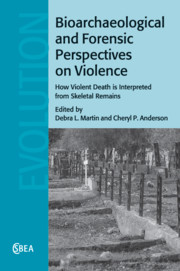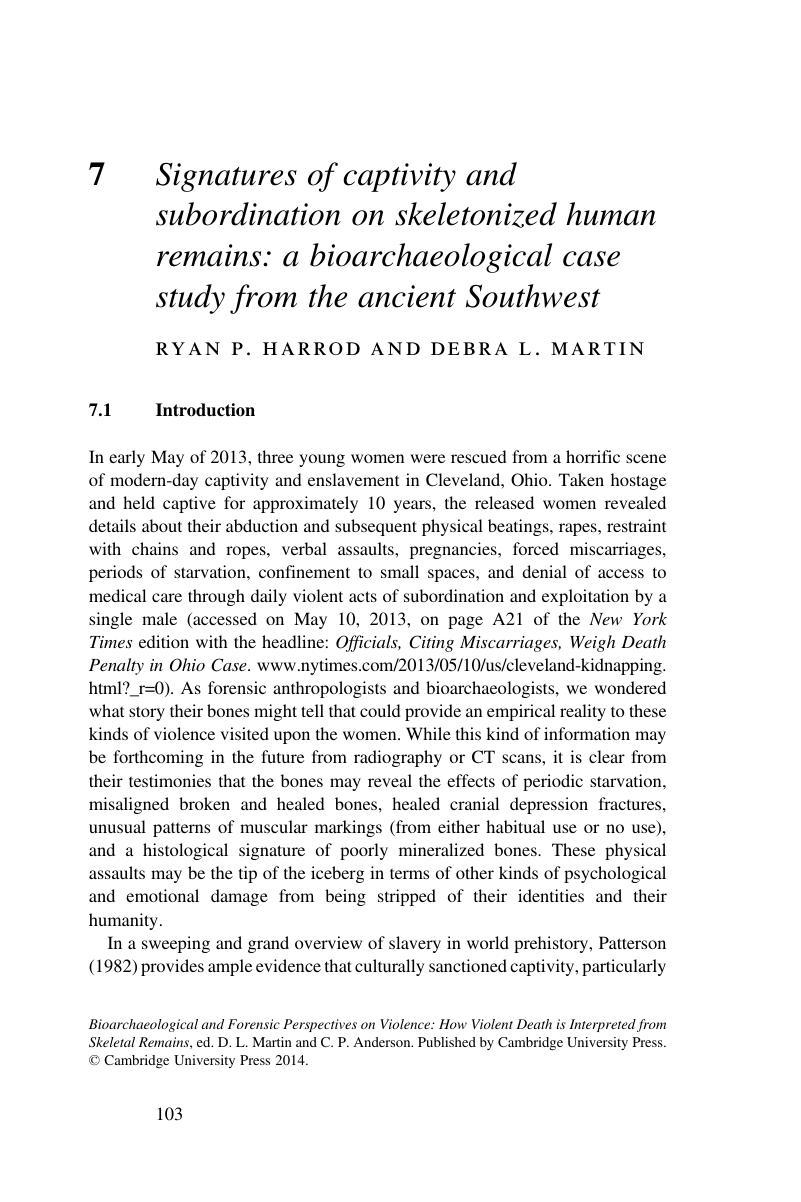 Bioarchaeological and Forensic Perspectives on Violence
Bioarchaeological and Forensic Perspectives on Violence Book contents
- Bioarchaeological and Forensic Perspectives on Violence: How Violent Death is Interpreted from Skeletal Remains
- Series page
- Bioarchaeological and Forensic Perspectives on Violence
- Copyright page
- Contents
- Contributors
- Part I Introduction
- Part II Overview and innovative methodologies
- Part III Ritual and performative violence
- 7 Signatures of captivity and subordination on skeletonized human remains: a bioarchaeological case study from the ancient Southwest
- 8 Classic Maya warfare and skeletal trophies: victims and aggressors
- 9 Face me like a man! (or, like a woman): antemortem nasal fractures in pre-Columbian San Pedro de Atacama
- 10 Why some bodies matter: defacement and narrative in historical forensics cases
- Part IV Violence and identity
- Part V Concluding thoughts
- Index
7 - Signatures of captivity and subordination on skeletonized human remains: a bioarchaeological case study from the ancient Southwest
from Part III - Ritual and performative violence
Published online by Cambridge University Press: 05 March 2014
- Bioarchaeological and Forensic Perspectives on Violence: How Violent Death is Interpreted from Skeletal Remains
- Series page
- Bioarchaeological and Forensic Perspectives on Violence
- Copyright page
- Contents
- Contributors
- Part I Introduction
- Part II Overview and innovative methodologies
- Part III Ritual and performative violence
- 7 Signatures of captivity and subordination on skeletonized human remains: a bioarchaeological case study from the ancient Southwest
- 8 Classic Maya warfare and skeletal trophies: victims and aggressors
- 9 Face me like a man! (or, like a woman): antemortem nasal fractures in pre-Columbian San Pedro de Atacama
- 10 Why some bodies matter: defacement and narrative in historical forensics cases
- Part IV Violence and identity
- Part V Concluding thoughts
- Index
Summary

- Type
- Chapter
- Information
- Bioarchaeological and Forensic Perspectives on ViolenceHow Violent Death Is Interpreted from Skeletal Remains, pp. 103 - 119Publisher: Cambridge University PressPrint publication year: 2014
- 13
- Cited by
